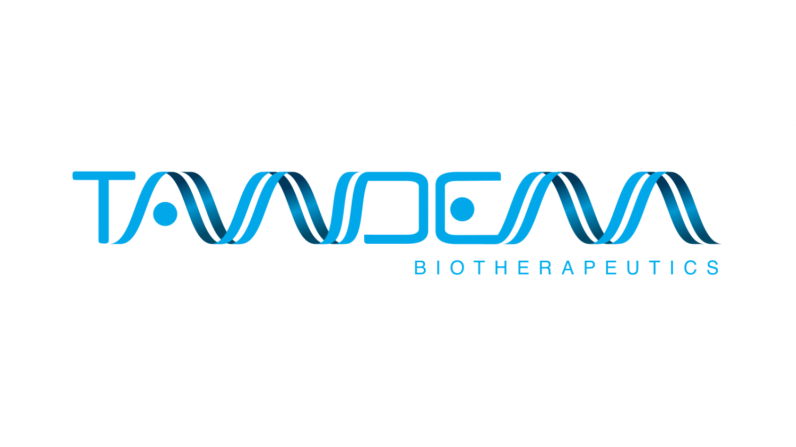
Each year, 8 million infants are born with congenital disorders, according to the World Health Organization. This reality presents profound heartbreak and hardships for parents worldwide, as well as significant challenges for the healthcare system.
Fortunately, biotechnology companies like Tandem Biotherapeutics Inc. (TBI), led by CEO David Paolella, Head of Research Dr. Roberto Gramignoli, and CSO Dr. Christineh Sarkissian have made significant developments that provide hope and effective treatment for congenital disorders.
Phenylketonuria (PKU), Maple Syrup Urine Disease (MSUD), and many other congenital liver enzyme defects can severely impact children's cognitive development, physical health, and overall quality of life when untreated. Current treatments are often arduous and only partially effective, significantly affecting patient outcomes.
Tandem Bio's groundbreaking technology provides the liver with the missing enzymes and related functions, effectively treating symptoms and preventing further clinical consequences associated with these conditions.
PKU, one of the most prevalent of these disorders, poses a formidable challenge to patients and caregivers. The absence of a crucial enzyme vital for liver metabolism results in dire clinical outcomes, including neurological impairment and other co-morbidities if patients don't follow a strict low-protein diet. Absent other treatment, patients can't eat most common foods like meats, dairy, rice, or pasta. Instead, they have to consume a special synthetic protein diet for life.
Tandem Bio's unique approach to cellular therapies utilizes stem cells extracted from human placental tissue at the end of pregnancy, with no risk to the donor. Paolella explains, "These cells can mature into the types of cells we need them to be. Right now, we're focusing on fixing liver defects. We take these special cells from healthy placentas and formulate them for people who are missing certain liver enzymes. It is a very targeted application."
The ability of these cells to educate the immune system towards tolerance while maintaining protective capacity and maturing to express hepatic enzymes holds immense promise for restoring health in the patient. After the cells are administered, they undergo maturation within the body to perform long-term functions in the liver. Unlike traditional methods, Tandem Bio's approach capitalizes on the regenerative potential of these donor cells, offering a more sustainable, safe, and effective treatment method.
The proof of concept for Tandem Bio's approach is grounded in rigorous preclinical studies. In one study on MSUD, three million human donor cells were administered to a mouse with a normal immune system, something not possible without immunosuppression in other stem cell treatments. Studies showed no sign of immune rejection, and the stem cells from the placenta turned into liver cells, producing the missing enzyme within a few weeks. Untreated, the animals couldn't survive more than 28 days, but those treated with the Tandem cells survived the full experiment, >100 days, and grew normally. The missing enzyme level was improved enough to correct the disease for the study's duration. They also found that Tandem's cells improved both serum and brain amino acid levels.
"The effective treatment is due to our stem cells maturing into liver cells," Dr. Gramignoli explains, "leading to the expression of hepatic enzymes to levels never observed in any other stem cell treatments before." These studies and first clinical trials will illustrate the safety and efficacy of Tandem Bio's therapies and demonstrate their remarkable potential to correct congenital liver defects.
The studies have also shown promising results for treatments across many other organs. As Tandem Bio grows, they plan to develop new programs to address different conditions. "There's a big opportunity for the development of treatments for multiple conditions and partnerships using our cell technology," Sarkissian shares.
For investors, these implications demonstrate Tandem Bio's groundbreaking work and market potential. The cell therapy market is rapidly growing, and Tandem Bio's approach offers scalability and versatility. With the recent approval and anticipated high reimbursement costs for cell and gene therapies, the market potential for advanced therapeutics is evident.
The market potential for Tandem Bio's advanced therapeutics, coupled with the company's unique approach and promising proof of concept, presents a compelling investment opportunity. As the healthcare industry continues to grapple with the challenges posed by hereditary disorders, Tandem Bio is on the cusp of a revolutionary treatment that could bring healing and hope to children and parents worldwide. Moreover, the successful implementation of Tandem Bio's therapies could invigorate the biotech sector, driving innovation and attracting significant investment.
Learn more about Tandem Bio's therapies and join them in championing a future where hereditary disorders are no longer barriers to health and happiness and where the biotech industry thrives through groundbreaking advancements.







Join the Conversation